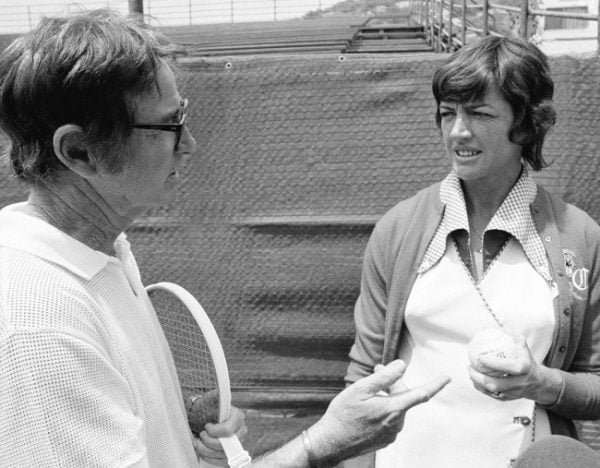Wimbledon champion Bobby Riggs was, in his own words, a “chauvinist pig”.
“Women belong in the bedroom and kitchen, in that order,” he once said.
They certainly did not belong on the tennis court.
Riggs firmly believed female tennis players ought to be paid 25 per cent of what male tennis players earned, given they “play about 25 per cent as good as men”.
Up until then, the world had looked pretty good to Riggs. In the early 1970s that’s how much women tennis players were paid – approximately one quarter of what men were.
But the landscape was beginning to shift beneath Riggs’ feet.
It was the infancy of the women’s liberation movement, and Riggs had a point to prove.
Women wanted equality, but to Riggs’ mind, they simply were not equal. They did not deserve pay parity in the game of tennis when their male counterparts were infinitely faster, stronger and more skilled than they were.
This was no longer a matter of discussion. Riggs was intent on confirming it.



Top Comments
I can't wait to see this movie!
Not sure what this proved. It wasn't as if the #1 man played the #1 woman.